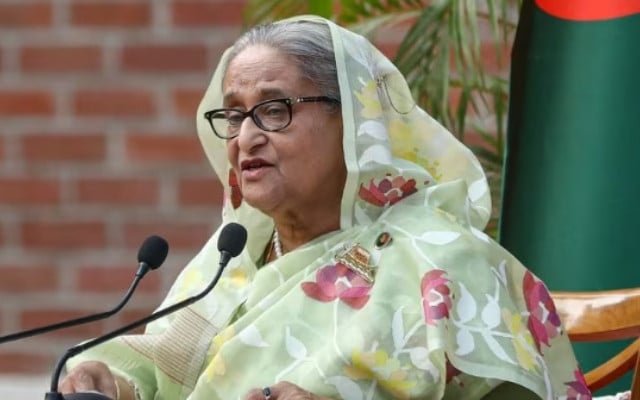Bangladesh Prime Minister Sheikh Hasina Resigns Amid Mass Protests
- byAdmin
- Aug 5, 2024
- 1 year ago

In response to massive public protests demanding her resignation, Bangladesh Prime Minister Sheikh Hasina has stepped down from her position. Reports indicate that Hasina, along with her sister, left the capital, Dhaka, for a safer location. A source close to the leader informed AFP that Hasina had intended to record a speech but was unable to do so.
Following her departure, Bangladesh's army chief, Waker-Uz-Zaman, addressed the nation, stating that the deaths during the recent anti-government protests would be investigated. He also announced that an interim government would be formed, with discussions on the matter currently underway.
Meanwhile, Indian media outlets have reported that Hasina left Bangladesh via military helicopter, reportedly headed to India after protestors stormed the Prime Minister's House in Dhaka.
The protests, organized by student leaders under the banner of "Students Against Discrimination," escalated following a deadly police crackdown on demonstrators last month. The unrest, which began over civil service job quotas, resulted in over 200 fatalities, marking some of the worst violence during Hasina's 15-year tenure.
Although troop deployments briefly restored order, large crowds returned to the streets this week, preparing for a nationwide civil disobedience campaign. The protestors have vowed to continue their actions until Hasina and her government resign.
"She must resign, and she must face trial," stated Nahid Islam, a leader of the Students Against Discrimination, during a rally at a monument to national heroes in Dhaka. The announcement was met with widespread approval from the crowd.
The group has called on citizens to stop paying taxes and utility bills starting Sunday, aiming to increase pressure on the government. They have also urged government workers and laborers in the country's critical garment industry to strike.
"She must go because we don't need this authoritarian government," said Nijhum Yasmin, a 20-year-old protestor, to AFP during one of the many protests in Dhaka. "Did we liberate the country to see our brothers and sisters shot dead by this regime?"
The upcoming non-cooperation campaign is reminiscent of the historical civil disobedience movement during Bangladesh's 1971 liberation war against Pakistan.
Please visit Realtime Brief for more news on this matter.
Post a comment
Hot Categories
Recent News
Barbie fever in UAE: Fans watch movie for second time with friends, family
- May 1, 2024
- 1 year ago
Daily Newsletter
Get all the top stories from Blogs to keep track.



0 comments